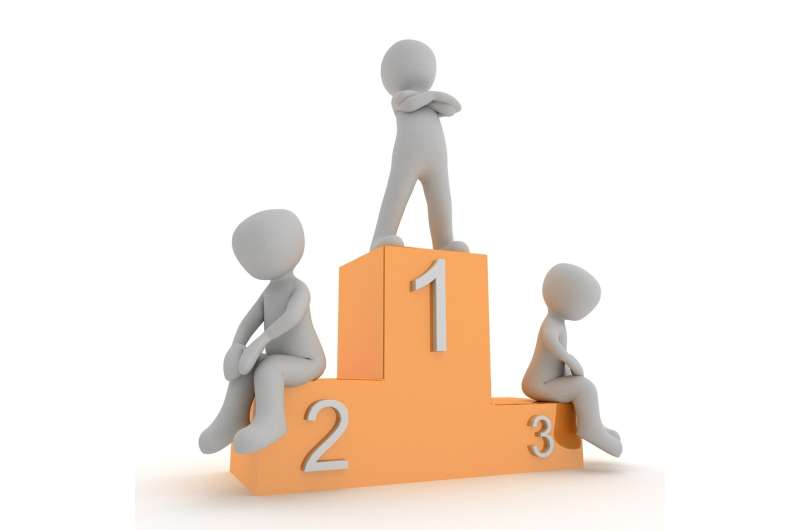Winning Olympic medals associated with increased physical activity in hometown youth

Olympic medals are not only good for the country and athletes who win them, but they can also have trickle-down effects on youth sports participation and leisure-time physical activity, a new study has found.
"Winning medals of any color had a positive association with physical activity among youth in the medal winners' hometowns," said Luke Potwarka, a professor in the Department of Recreation and Leisure Studies at the University of Waterloo. "This association was particularly prominent among male-identified youth and those living in less densely populated regions of the country."
The researchers analyzed youth leisure-time physical activity rates in the hometown regions of Canadian athletes who won a medal at the London 2012 Olympic Games. Data were extracted from the Canadian Community Health Survey and spanned the years leading up to the games, 2009 to 2010 to post-Olympic years, 2013 to 2014.
"Winning medals often creates athletic role models and celebrities, which may help explain trickle-down effects observed in hometown communities," Potwarka said. "Olympic and Paralympic medal winners may become personally relevant to local youth because of shared connections that exist within hometown areas, such as access to community sports programs, coaches and facilities."
According to Potwarka, inspiration from watching medal performances may be heightened when local youth audiences feel connected to athletes and when their achievements appear attainable.
The trends observed in the study were more prominent among male-identified youth. Potwarka said this shows there is still work to be done to ensure equity and inclusion in sports— including female-identified youth, who often face greater barriers to sports participation than male-identified youth.
"Our study's findings reflect the reality that inspiration can be gendered and inequitable," Potwarka said. "The tendency to trivialize the sporting achievements of female-identified athletes is still very much present in society."
Potwarka noted that prior to this study, most research examining sports participation impacts of mega-sports events were limited to those that could be observed within the host country. However, the study showed that the inspirational effects of major sports events can be a global phenomenon, which is especially important considering that many events attract online and television audiences from all over the world.
The paper, Beyond the host nation: an investigation of trickle-down effects in the Hometowns' of Canadian athletes who competed at the London 2012 Olympic Games, was co-authored by Potwarka, Girish Ramchandani, Pablo Castellanos-Garcia, Themistocles Kokolakakis, Georgia Teare and Kai Jiang. It was published in European Sport Management Quarterly.
More information: Luke Potwarka et al, Beyond the host nation: an investigation of trickle-down effects in the 'Hometowns' of Canadian athletes who competed at the London 2012 Olympic Games, European Sport Management Quarterly (2021). DOI: 10.1080/16184742.2021.1941182



















